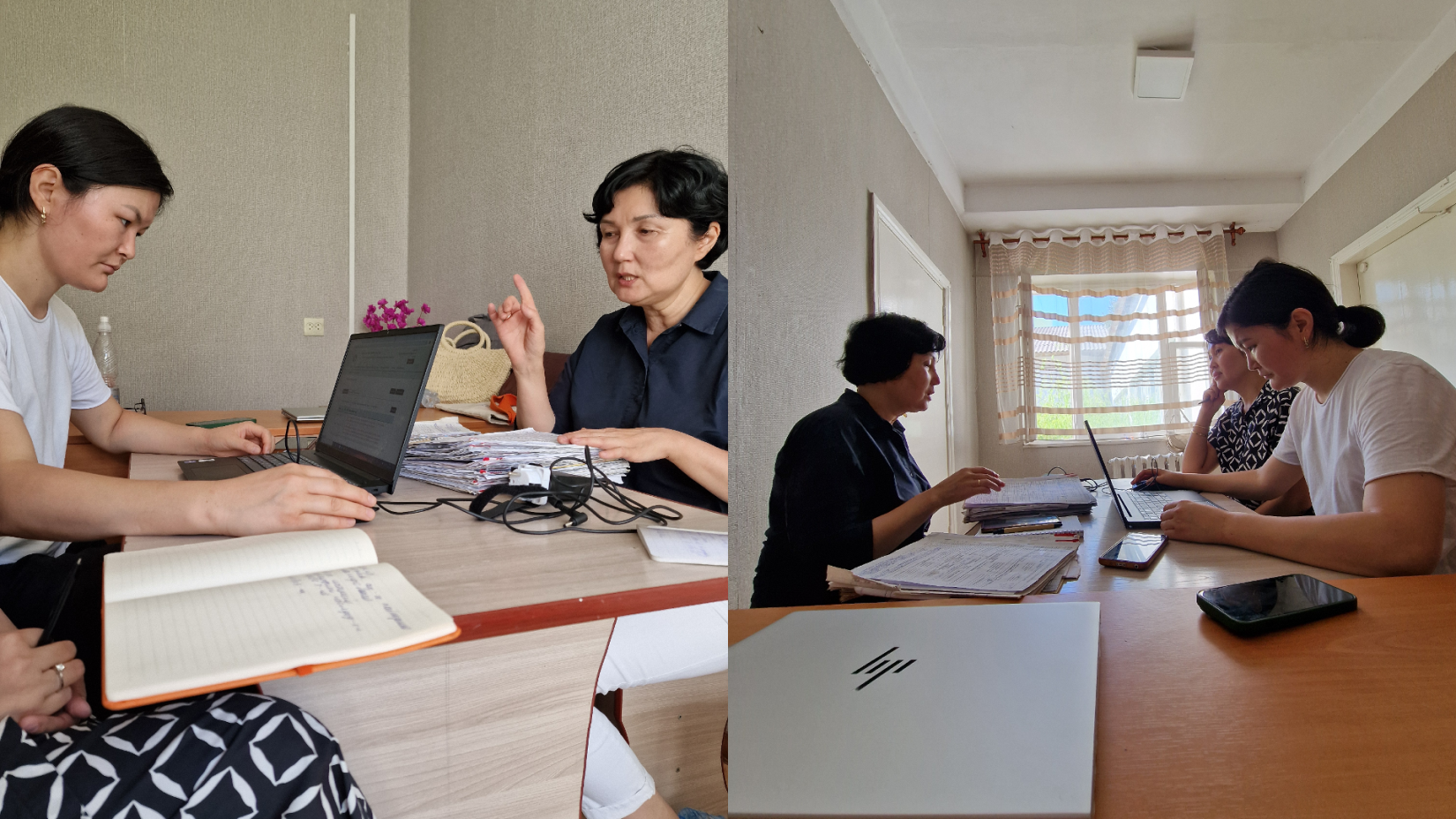Quality Assurance in Healthcare: Preventing Maternal Morbidity Through Obstetric Surveillance Response System
29 August 2024
Severe maternal morbidity is a pressing concern that is much more common than maternal mortality. However, reporting systems for such cases are not widespread in Kyrgyzstan. A timely referral system can prevent maternal deaths, highlighting the need for reliable data on severe cases of maternal morbidity.
In a determined effort to enhance maternal health outcomes, a quality assurance initiative was launched within the framework of the UN South-South Cooperation project. This project funded by India-UN Development Partnership Fund aims to reduce preventable maternal morbidity through improved access to quality health services by utilizing an obstetric surveillance response system (OSRS) and teleconsultation in five pilot maternity hospitals in Kyrgyzstan.
The project is supported and implemented by the Ministry of Health of the Kyrgyz Republic and the UN Population Fund.
The OSRS platform was specifically designed to facilitate the online collection of data on severe postpartum hemorrhage and eclampsia cases from pilot organizations.
The platform’s primary objective is to centralize and streamline data collection, thereby enhancing the monitoring and response to critical maternal health conditions.
To initiate data collection, 41 specialists from the maternity hospitals, the Executive Committee of the OSRS, and a multidisciplinary team underwent training to improve their knowledge and skills in utilizing the web platform. The reporters in the field play a critical role in collecting the required data as properly collected data facilitate the process of analyzing maternal morbidity and taking necessary actions to prevent them from occurring in the country in the future. Each collected and registered in the OSRS platform case is of paramount importance as it enables to identify the bottlenecks to be addressed in saving lives of women and newborns. Since May, they have been collecting data on two specific maternal health conditions: postpartum hemorrhage and eclampsia.

Cholpon Stakeeva, a Ministry of Health expert, emphasizes the importance of the OSRS: “This system involves a meticulous process of data collection and analysis. Designated and trained reporters from five pilot maternity hospitals gather detailed case histories, which are then scrutinized. The objective is to identify systemic issues and areas for improvement and support continuous improvement in healthcare service delivery.”
A key aspect of this initiative is the development of specific criteria to define critical cases. These criteria include factors such as blood transfusion volume, hemoglobin level drop, and the need for surgical intervention. Cases meeting these criteria are flagged for further investigation by a working committee, enabling a targeted approach to quality improvement.
The initiative also emphasizes the importance of continuous monitoring and fosters a culture of open communication among healthcare providers. Regular reviews and discussions facilitate the identification of potential gaps in care and the proactive implementation of corrective actions.
“While challenges exist, such as the need for ongoing training and the risk of underreporting, the commitment to quality improvement remains steadfast,” Cholpon Stakeeva shares her perspective, “The ultimate goal is to enhance patient safety and outcomes by learning from critical incidents and implementing evidence-based recommendations. This initiative serves as a valuable case study in the ongoing efforts to ensure quality healthcare for all.”

By initiating the collection of data on eclampsia and postpartum hemorrhage through the collaborative efforts and a systematic approach provided by the OSRS web platform, the Ministry of Health starts to enhance early detection, improve management practices, and increase the patients’ safety. The preliminary data already promises to represent a significant milestone in advancing maternal health monitoring and response strategies across Kyrgyzstan.



